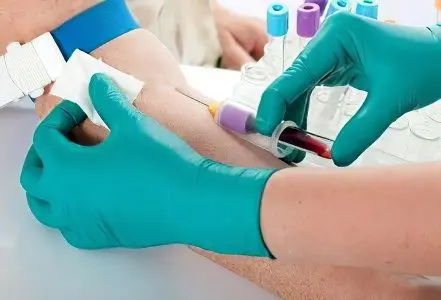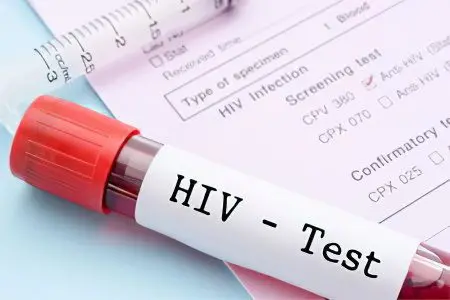Contents
Positive and negative test for HIV and hepatitis

Almost everyone knows about such a terrible disease as HIV infection (human immunodeficiency virus) in our time. This disease, called the plague of the twentieth century, and to this day is incredibly dangerous, there is no universal cure for it. In this viral disease, immune suppression occurs at the cellular level. Extensive knowledge about the transmission of this virus, obtained by modern medicine as a result of numerous studies, allows a person to avoid or minimize the risk of possible infection.
If a situation has occurred in which infection is possible (this may be an accidental sexual relationship with an unknown person without using a condom, the use of non-sterile medical instruments or tattooing equipment, the sharing of injection needles, etc.), then it is best to check for the presence of body of HIV infection. It is also highly recommended to pass such tests in such cases:
With a sharp weight loss for unclear reasons.
When planning a pregnancy.
In preparation for surgery and hospitalization.
A blood test should be taken in order to save yourself from fears and anxieties, protect your loved ones and, if necessary, start timely treatment. Just by appearance it is impossible to determine whether a person is infected or not. HIV is a very insidious disease. The penetration and development of the virus in the body may cause little or no signs of infection. The emerging symptoms of HIV are very easy to attribute to signs of some minor illness, so in many cases they go unnoticed.
To accurately detect the virus in the body, special laboratory tests should be performed. Such tests are carried out with blood serum taken from a vein. They are based not on the detection of the virus itself, but on antibodies to HIV. Antibodies can be called soldiers of the immune system, protecting the body from various infections. When bacteria and viruses enter the bloodstream, the immune system begins to produce antibodies to them. When HIV enters the human body, the immune system begins to produce the appropriate antibodies.
In quantities sufficient to detect, they are usually produced within three months after infection. Depending on the state of the immune system, the time for the appearance of antibodies may differ – for someone they appear within two to three weeks, in some cases, for example, with severe drug addiction, this process can take up to a year. This period, when the virus is already present in the body, but antibodies are not yet detected, is called the “seronegative window”, seroconversion, or the period of antibody development.

During this period, the results of an HIV test will be negative, but an infected person is already capable of infecting other people. An enzyme-linked immunosorbent assay that detects antibodies directed against HIV is used to test blood for HIV infection. The polymerase chain reaction method is also used, which detects the virus itself in the body and is the most reliable method.
The result of the PCR analysis is usually called positive if the virus is detected, negative when the virus is not detected and doubtful if the virus markers are present, but not all. A blood test should be taken on an empty stomach, the time interval between taking blood and the last meal should be at least eight hours. Blood for analysis is taken from the cubital vein with a sterile syringe in a special treatment room
A blood test for hepatitis is also done to determine the presence of antibodies to this virus. This analysis can confirm or disprove a person’s infection with the hepatitis virus. Tests will also help determine the degree of liver damage due to this disease.
Since the early stages of the disease can be almost asymptomatic, it is necessary to test for hepatitis as early as possible to prevent severe liver damage. It should be taken on an empty stomach. At least eight hours must elapse between blood sampling and the last meal.
Where to get tested for HIV during pregnancy
A blood test for HIV during pregnancy is mandatory for every woman, although, of course, no one has the right to force her. Usually, tests for the detection of antibodies to this virus during pregnancy are performed twice – immediately upon registration and at the thirtieth week of pregnancy. The direction for these tests is issued by your attending physician at the first visit to the antenatal clinic.
He also tells how to get to the place of delivery of these tests and explains their results. Since HIV transmission can occur from an infected mother to her child, such tests are very important.









